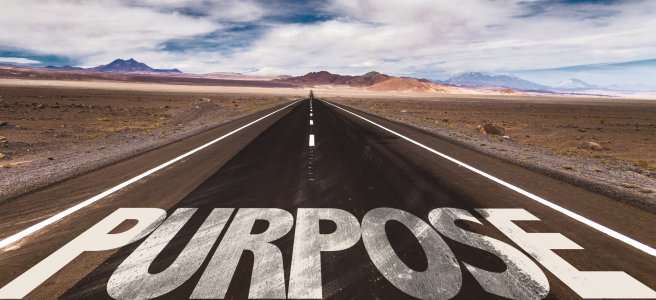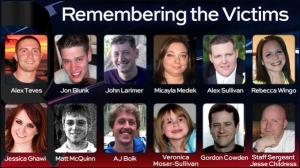
From Merriam Webster:
candle (transitive verb): to examine by holding between the eye and a light; especially : to test (eggs) in this way for staleness, blood clots, fertility, and growth
Have you ever looked at a word you’ve written a thousand times as though it couldn’t possibly be spelled that way? You doubt yourself, double check it in the dictionary and carry on. I have recently had the opportunity to reassess personal relationships I’ve held sacred, but upon examination found I have done so without a compelling reason. No longer a child, I held up these individuals to the same light of reason, logic, compassion and magnanimity to which I would hope to be judged, not unlike candling an egg. Rather than record my observations, I sought insight from those more intelligent. Here are my thoughts via their appropriated words, alpha by author:
“Children’s talent to endure stems from their ignorance of alternatives.” Maya Angelou
“Beware the man of a single book.” St. Thomas Aquinas
“Never let your sense of morals prevent you from doing what is right.” Isaac Asimov
“The basic stimulus to the intelligence is doubt, a feeling that the meaning of an experience is not self-evident.” W.H. Auden
“I think we risk becoming the best informed society that has ever died of ignorance.” Reuben Blades
“If you think education is expensive, try ignorance.” Derek Bok
“There is no such uncertainty as a sure thing.” Robert Burns
“The evil that is in the world almost always comes of ignorance, and good intentions may do as much harm as malevolence if they lack understanding.” Albert Camus
“Never underestimate the power of stupid people in large groups.” George Carlin
“The IQ and the life expectancy of the average American recently passed each other in opposite directions.” George Carlin
“I prefer tongue-tied knowledge to ignorant loquacity.” Marcus Tullius Cicero
“I am not ashamed to confess I am ignorant of what I do not know.” Marcus Tullius Cicero
“He only employs his passion who can make no use of his reason.” Marcus Tullius Cicero
“To live is to think.” Marcus Tullius Cicero
“Confidence is ignorance. If you’re feeling cocky, it’s because there’s something you don’t know.” Eoin Colfer
“Real knowledge is to know the extent of one’s ignorance.” Confucius
“Ignorance is the night of the mind, a night without moon or star.” Confucius
“The essence of knowledge is, having it, to apply it; not having it, to confess your ignorance.” Confucius
“He who knows all the answers has not been asked all the questions.” Confucius
“Where ignorance is our master, there is no possibility of real peace.” Dalai Lama
“Ignorance more frequently begets confidence than does knowledge: it is those who know little, not those who know much, who so positively assert that this or that problem will never be solved by science.” Charles Darwin
“And, in fine, of false sciences I thought I knew the worth sufficiently to escape being deceived by the professions of an alchemist, the predictions of an astrologer, the impostures of a magician, or by the artifices and boasting of any of those who profess to know things of which they are ignorant.” René Descartes
“Military guys are rarely as smart as they think they are, and they’ve never gotten over the fact that civilians run the military.” Maureen Dowd
“He who joyfully marches to music in rank and file has already earned my contempt. He has been given a large brain by mistake, since for him the spinal cord would surely suffice.” Albert Einstein
“The measure of intelligence is the ability to change.” Albert Einstein
“You are not entitled to your opinion. You are entitled to your informed opinion. No one is entitled to be ignorant.” Harlan Ellison
“Fear always springs from ignorance.” Ralph Waldo Emerson
“There are many things of which a wise man might wish to be ignorant.” Ralph Waldo Emerson
“If we encounter a man of rare intellect, we should ask him what books he reads.” Ralph Waldo Emerson
“Talk sense to a fool and he calls you foolish.” Euripides
“Anger exceeding limits causes fear and excessive kindness eliminates respect.” Euripides
“The test of a first-rate intelligence is the ability to hold two opposed ideas in the mind at the same time and still retain the ability to function.” F. Scott Fitzgerald
“Stupidity lies in wanting to draw conclusions.” Gustave Flaubert
“Being ignorant is not so much a shame, as being unwilling to learn.” Benjamin Franklin
“The doorstep to the temple of wisdom is a knowledge of our own ignorance.” Benjamin Franklin
“The only thing more expensive than education is ignorance.” Benjamin Franklin
“We are all born ignorant, but one must work hard to remain stupid.” Benjamin Franklin
“I wash my hands of those who imagine chattering to be knowledge, silence to be ignorance, and affection to be art.” Kahlil Gibran
“There is nothing more frightful than ignorance in action.” Johann Wolfgang von Goethe
“Point me out the happy man and I will point you out either extreme egotism, selfishness, evil — or else an absolute ignorance.” Graham Greene
“If you’re gonna be stupid you gotta be tough.” John Grisham
“The greatest enemy of knowledge is not ignorance, it is the illusion of knowledge.” Stephen Hawking
“Man’s mind, once stretched by a new idea, never regains its original dimensions.” Oliver Wendell Holmes Sr.
“The recipe for perpetual ignorance is: Be satisfied with your opinions and content with your knowledge.” Elbert Hubbard
“God will not look you over for medals, degrees or diplomas but for scars.” Elbert Hubbard
“The learned man knows that he is ignorant.” Victor Hugo
“The tax which will be paid for the purpose of education is not more than the thousandth part of what will be paid to kings, priests and nobles who will rise up among us if we leave the people in ignorance.” Thomas Jefferson
“Those who never retract their opinions love themselves more than they love truth.” Joseph Joubert
“The only means of strengthening one’s intellect is to make up one’s mind about nothing — to let the mind be a thoroughfare for all thoughts.” John Keats
“People demand freedom of speech as a compensation for the freedom of thought which they seldom use.” Søren Kierkegaard
“Nothing in the world is more dangerous than a sincere ignorance and conscientious stupidity.” Martin Luther King, Jr.
“A fool can easily be known by what proceeds from his or her mouth.” Adedayo Kingjerry
“Living is easy with eyes closed.” John Lennon
“Having children makes you no more a parent than having a piano makes you a pianist.” Michael Levine
“I do not think much of a man who is not wiser today than he was yesterday.” Abraham Lincoln
“A good head and good heart are always a formidable combination. But when you add to that a literate tongue or pen, then you have something very special.” Nelson Mandela
“Military intelligence is a contradiction in terms.” Groucho Marx
“A book lying idle on a shelf is wasted ammunition.” Henry Miller
“We have now sunk to a depth at which restatement of the obvious is the first duty of intelligent men.” George Orwell
“I would prefer an intelligent hell to a stupid paradise.” Blaise Pascal
“And whenever anyone informs us that he has found a man who knows all the arts, and all things else that anybody knows, and every single thing with a higher degree of accuracy than any other man –whoever tells us this, I think that we can only imagine him to be a simple creature who is likely to have been deceived by some wizard or actor whom he met, and whom he thought all-knowing, because he himself was unable to analyze the nature of knowledge and ignorance and imitation.” Plato
“A little learning is a dangerous thing; Drink deep, or taste not the Pierian spring; There shallow draughts intoxicate the brain, And drinking largely sobers us again.” Alexander Pope
“There is no reply to the ignorant like keeping silence.” Proverb
“Discussion is an exchange of knowledge; an argument an exchange of ignorance.” Robert Quillen
“When ignorance gets started it knows no bounds.” Will Rogers
“The fundamental cause of the trouble is that in the modern world the stupid are cocksure while the intelligent are full of doubt.” Bertrand Russell
“A stupid man’s report of what a clever man says can never be accurate, because he unconsciously translates what he hears into something he can understand.” Bertrand Russell
“Two things are to be remembered: that a man whose opinions and theories are worth studying may be presumed to have had some intelligence, but that no man is likely to have arrived at complete and final truth on any subject whatever. When an intelligent man expresses a view which seems to us obviously absurd, we should not attempt to prove that it is somehow true, but we should try to understand how it ever came to seem true. This exercise of historical and psychological imagination at once enlarges the scope of our thinking, and helps us to realize how foolish many of our own cherished prejudices will seem to an age which has a different temper of mind.” Bertrand Russell
“Ignorant people see life as either existence or non-existence, but wise men see it beyond both existence and non-existence to something that transcends them both; this is an observation of the Middle Way.” Seneca
“There is no darkness but ignorance.” William Shakespeare
“A knavish speech sleeps in a fool’s ear.” William Shakespeare
“The fool doth think he is wise, but the wise man knows himself to be a fool.” William Shakespeare
“The shortest route to courage is absolute ignorance.” Dan Simmons
“There is only one good, knowledge, and one evil, ignorance.” Socrates
“It’s an universal law– intolerance is the first sign of an inadequate education. An ill-educated person behaves with arrogant impatience, whereas truly profound education breeds humility.” Aleksandr Solzhenitsyn
“It is better to remain silent at the risk of being thought a fool, than to talk and remove all doubt of it.” Maurice Switzer
“The stupid neither forgive nor forget; the naive forgive and forget; the wise forgive but do not forget.” Thomas Stephen Szasz
“Ignorance and inconsideration are the two great causes of the ruin of mankind.” John Tillotson
“We can know only that we know nothing. And that is the highest degree of human wisdom.” Leo Tolstoy
“All you need in this life is ignorance and confidence, and then success is sure.” Mark Twain
“Ignorance is a virus. Once it starts spreading, it can only be cured by reason. For the sake of humanity, we must be that cure.” Neil deGrasse Tyson
“He must be very ignorant for he answers every question he is asked.” Voltaire
“The more I read, the more I acquire, the more certain I am that I know nothing.” Voltaire
“If your brains were dynamite there wouldn’t be enough to blow your hat off.” Kurt Vonnegut
“Irony is wasted on the stupid.” Oscar Wilde
“The public have an insatiable curiosity to know everything, except what is worth knowing.” Oscar Wilde
“He had just about enough intelligence to open his mouth when he wanted to eat, but certainly no more.” P.G. Wodehouse
“Ignorance is not bliss – it is oblivion.” Philip Wylie
“Rich people have small TVs and big libraries, and poor people have small libraries and big TVs.” Zig Ziglar
Which quote is your favorite?
Mine?
“Many wearing rapiers are afraid of goosequills.” William Shakespeare.
Although you may recognize it as:
“The pen is mightier than the sword (or gun).”













